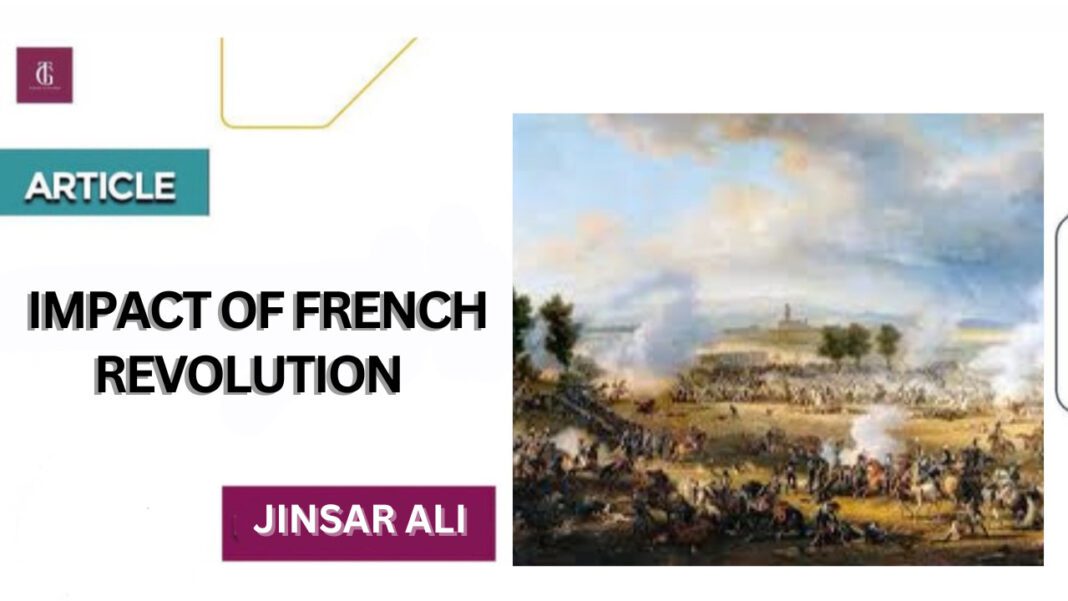The French Revolution was one of the greatest events in human history that changed Europe and the world. For the first time, people showed their supremacy and challenged the monarchy. The event gave the idea of equality, justice, and fraternity. It was the one voice of people against the injustice of the monarchs. This event spread throughout Europe and the world, allowing people to raise their voices against their government. As they said,” Governments are our enemy, and people are our friends.” However, there were several reasons behind the revolution, like the financial crisis, heavy taxes on the third estate (ordinary people), exemption of taxes on the first and second estates (clergy and noble), enlightenment ideas by philosophers like Voltaire and Rousseau that boasted the confidence of people. Apart from that, Social inequality, weak leadership, food shortages, and high prices were factors behind the revolution. The revolution ended with several changes, like the monarchy’s end, radical political movements, the reign of terror, the spread of revolutionary ideas, and the rise of nationalism in Europe and the world.
Causes of Revolution
Social inequality. It was one of the primary causes of the revolution, as people faced social inequality. French society was divided into three estates; the first two estates were enjoying powers, owning land, and not paying taxes. The third estate, peasants and laborers, paid huge taxes and got nothing in return. So peasantry demanded equality and justice, which caused tension in the nobility and clergy.
Financial crisis. France faced a severe financial crisis during the 18th century due to extravagant spending by the monarchy and expensive wars. The government imposed more taxes on people to overcome the financial crisis, which incited anger.
Enlightenment ideas. During the 18th century, philosophers like Voltaire, Rousseau, and Montesquieu spread awareness in public through their writing and poetry. They demanded equality, justice, and fraternity. They challenged the status quo of the government, advocated democratic principles, and criticized the absolute monarchy.
Weak leadership. King Louis XVI faced a crisis of leadership. He was an ineffective leader and could not run the country. He exploited the masses and common men and gave much relief to the nobility. He imposed severe taxes on the peasantry that increased the suffering of common people.
Food shortage. The involvement of France in wars caused food shortages. Prices of bread rose, which was the food of people. Hunger compelled people to storm shops and loot shops, creating chaos in the country.
Consequences of the revolution.
The French Revolution had several consequences; it ended the monarchy in France and established democracy. It also compelled other countries to lead the war on France to stop the revolution in their countries. Furthermore, it led to the rise of Napoleon Bonaparte, who became the emperor of France, and he expanded the territory of France through military invasions.
Impacts of Revolution on Europe and the World
There is no denying that the revolution brought several changes in Europe and the world. It directly affected Europe as people raised their voices against their governments in European countries. Few social scientists believe that the revolution engulfed entire Europe in flames of fire and became the reason for the independence of several countries as the idea of nationalism increased in Europe and the world. The feudalism system declined throughout Europe. Furthermore, revolutionary ideas spread like wildfire worldwide, particularly in Europe. In addition, democratic principles were promoted, and human rights were respected and accepted. For the first time, the participation of people in government and
The French Revolution in 1789 was the populace’s attempt to wrest political power from the monarchy. It started from the will and determination of common people and ended with the supremacy of ordinary people. It gave authority and power to people rather than monarchists. It gave the idea of equality, justice, and fraternity. It promoted democratic principles and human rights values across the world. Indeed, the French Revolution is a case study that tells how injustice and inequality lead to revolt that can engulf the entire world with the flames of fire.
Jinsar Ali is a student of International Relations at NUML, Islamabad.






